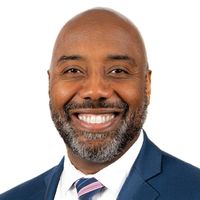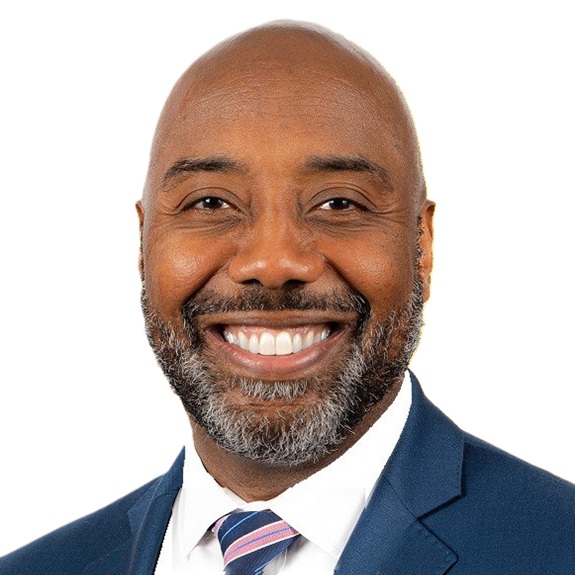Remember, You’re Worth More Than Your Money
When it comes to estate planning, it’s time for us all to look beyond the money … with an ethical will.


Profit and prosper with the best of Kiplinger's advice on investing, taxes, retirement, personal finance and much more. Delivered daily. Enter your email in the box and click Sign Me Up.
You are now subscribed
Your newsletter sign-up was successful
Want to add more newsletters?

Delivered daily
Kiplinger Today
Profit and prosper with the best of Kiplinger's advice on investing, taxes, retirement, personal finance and much more delivered daily. Smart money moves start here.

Sent five days a week
Kiplinger A Step Ahead
Get practical help to make better financial decisions in your everyday life, from spending to savings on top deals.

Delivered daily
Kiplinger Closing Bell
Get today's biggest financial and investing headlines delivered to your inbox every day the U.S. stock market is open.

Sent twice a week
Kiplinger Adviser Intel
Financial pros across the country share best practices and fresh tactics to preserve and grow your wealth.

Delivered weekly
Kiplinger Tax Tips
Trim your federal and state tax bills with practical tax-planning and tax-cutting strategies.

Sent twice a week
Kiplinger Retirement Tips
Your twice-a-week guide to planning and enjoying a financially secure and richly rewarding retirement

Sent bimonthly.
Kiplinger Adviser Angle
Insights for advisers, wealth managers and other financial professionals.

Sent twice a week
Kiplinger Investing Weekly
Your twice-a-week roundup of promising stocks, funds, companies and industries you should consider, ones you should avoid, and why.

Sent weekly for six weeks
Kiplinger Invest for Retirement
Your step-by-step six-part series on how to invest for retirement, from devising a successful strategy to exactly which investments to choose.
Let’s admit it, the financial industry has spent far too long treating end-of-life planning like a mathematical exercise. Rather than viewing it as the very human process it should be, conversations often center around taking an inventory of people’s money and assets followed by a functional decision about where different parts of their estate should go.
This is missing the point because, in truth, the things that make us who we are reach far beyond the number of properties we own or the amount of money we earn. Just ask the families of Dr. King or, more recently, the millions of health care professionals and volunteer community workers who helped us through the pandemic.
In fact, the experiences we have, the beliefs we hold and the decisions we make are as important a part of our legacy as any monetary inheritance we leave behind. And the way to capture all this non-financial worth is by crafting an ethical will to augment your traditional will.
From just $107.88 $24.99 for Kiplinger Personal Finance
Become a smarter, better informed investor. Subscribe from just $107.88 $24.99, plus get up to 4 Special Issues

Sign up for Kiplinger’s Free Newsletters
Profit and prosper with the best of expert advice on investing, taxes, retirement, personal finance and more - straight to your e-mail.
Profit and prosper with the best of expert advice - straight to your e-mail.
The ethical choice
Ethical wills first began to appear in the 1990s, usually in the form of a “legacy letter” written just before a person died and then bolted onto their main will as an appendix. Such letters are designed to define a person’s non-financial legacy – from details of the key milestones, places and relationships in their life to the thoughts, feelings, obstacles and lessons they experienced along the way. They can even be a place to ensure important family traditions and values are preserved and continued in future.
But valuable as a legacy letter can be, how can you communicate everything about someone’s life in a page or two? And can you really remember, so late in life, all of the events from years before that you wanted to share and what they meant to you? The answer to both questions is you can’t, which means the idea of the ethical will has to evolve.
Instead of hastily writing it in hindsight during old age, you should be constantly capturing major milestones, lessons and experiences in your life as they happen. That way, future generations of your family can read, watch and, crucially, learn from them further down the line.
Perfectly imperfect
Naturally, many of the stories you’ll want to share in your ethical will would be achievements – both professional and personal. Buying a house. Starting a business. The tale of how you met your partner and went on to build a loving relationship. All of which have incredible emotional value to everyone coming next.
But at the same time, an ethical will isn’t only about painting a picture of perfection. As people, we’re inspired by recovery, so you must also record the times you hit a brick wall, failed and came back stronger. The moment you lost your job, got divorced or faced some other challenge.
These life experiences and snippets of advice from them will help future generations avoid the same mistakes and believe they can overcome similar deep cuts in their own lives. Plus, understanding your story can often bring a sense of ease and comfort to them as regards to who they are and what their place in the world is. Why? Because they know they’re walking in the footsteps of years of family history.
Immortality … kind of
On the other side of the equation, an ethical will can enable you, as the bequeather, to fulfill that innate human desire to be eternal. To leave a legacy based not only on your material wealth, but on your relationships, intellect, ethics and life lessons. And to keep on having “conversations” with your grandkids about their financial decisions and lifestyle choices long after you die.
You can even create a matching program in which your assets are linked to a specific behavior pattern. So, if your goal is to inspire the next generation of entrepreneurs, missionaries or professors, you can expressly state in your will that anyone who decides to pursue your chosen path can reach into the family trust and get X amount of dollars to do so. In other words, you can align your financial resources to behaviors and values that are important to you from beyond the grave.
Four immediate steps to start your own ethical will
Here are four steps you can take now to begin building an ethical will:
- Read a book on what an ethical will is and make sure your financial adviser reads it too. There are loads of good ones out there, but two I particularly like are So Grows the Tree by Jo Kline Cebuhar and Ethical Wills & How to Prepare Them by Rabbi Jack Riemer and Dr. Nathaniel Stampfer.
- Invest in a five-year journal or use your phone to start recording moments, milestones and experiences.
- Create a “failure résumé” of times when things went wrong and how you learned from them.
- Make discussing your ethical will a set agenda item during your annual financial planning review.
Whatever steps you decide to take to get started on your ethical will, the key is to ensure that you’re planning for end-of-life in a way that goes beyond simply passing on your financial wealth to future generations.
Instead, you should be including all the other things that have defined your life and that can go on to help your loved ones shape theirs too. Sure, the math and the money will always be important. But believe me, you’re worth so much more than that!
Profit and prosper with the best of Kiplinger's advice on investing, taxes, retirement, personal finance and much more. Delivered daily. Enter your email in the box and click Sign Me Up.

Stephen Dunbar, Executive Vice President of Equitable Advisors’ Georgia, Alabama, Gulf Coast Branch, has built a thriving financial services practice where he empowers others to make informed financial decisions and take charge of their future. Dunbar oversees a territory that includes Georgia, Alabama and Florida. He is also committed to the growth and success of more than 70 financial advisers. He is passionate about helping people align their finances with their values, improve financial decision-making and decrease financial stress to build the legacy they want for future generations.
-
 How to Turn Your 401(k) Into A Real Estate Empire
How to Turn Your 401(k) Into A Real Estate EmpireTapping your 401(k) to purchase investment properties is risky, but it could deliver valuable rental income in your golden years.
-
 My First $1 Million: Retired Nuclear Plant Supervisor, 68
My First $1 Million: Retired Nuclear Plant Supervisor, 68Ever wonder how someone who's made a million dollars or more did it? Kiplinger's My First $1 Million series uncovers the answers.
-
 How to Position Investments to Minimize Taxes for Your Heirs
How to Position Investments to Minimize Taxes for Your HeirsTo minimize your heirs' tax burden, focus on aligning your investment account types and assets with your estate plan, and pay attention to the impact of RMDs.
-
 Don't Bury Your Kids in Taxes: How to Position Your Investments to Help Create More Wealth for Them
Don't Bury Your Kids in Taxes: How to Position Your Investments to Help Create More Wealth for ThemTo minimize your heirs' tax burden, focus on aligning your investment account types and assets with your estate plan, and pay attention to the impact of RMDs.
-
 Are You 'Too Old' to Benefit From an Annuity?
Are You 'Too Old' to Benefit From an Annuity?Probably not, even if you're in your 70s or 80s, but it depends on your circumstances and the kind of annuity you're considering.
-
 In Your 50s and Seeing Retirement in the Distance? What You Do Now Can Make a Significant Impact
In Your 50s and Seeing Retirement in the Distance? What You Do Now Can Make a Significant ImpactThis is the perfect time to assess whether your retirement planning is on track and determine what steps you need to take if it's not.
-
 Your Retirement Isn't Set in Stone, But It Can Be a Work of Art
Your Retirement Isn't Set in Stone, But It Can Be a Work of ArtSetting and forgetting your retirement plan will make it hard to cope with life's challenges. Instead, consider redrawing and refining your plan as you go.
-
 The Bear Market Protocol: 3 Strategies to Consider in a Down Market
The Bear Market Protocol: 3 Strategies to Consider in a Down MarketThe Bear Market Protocol: 3 Strategies for a Down Market From buying the dip to strategic Roth conversions, there are several ways to use a bear market to your advantage — once you get over the fear factor.
-
 For the 2% Club, the Guardrails Approach and the 4% Rule Do Not Work: Here's What Works Instead
For the 2% Club, the Guardrails Approach and the 4% Rule Do Not Work: Here's What Works InsteadFor retirees with a pension, traditional withdrawal rules could be too restrictive. You need a tailored income plan that is much more flexible and realistic.
-
 Retiring Next Year? Now Is the Time to Start Designing What Your Retirement Will Look Like
Retiring Next Year? Now Is the Time to Start Designing What Your Retirement Will Look LikeThis is when you should be shifting your focus from growing your portfolio to designing an income and tax strategy that aligns your resources with your purpose.
-
 I'm a Financial Planner: This Layered Approach for Your Retirement Money Can Help Lower Your Stress
I'm a Financial Planner: This Layered Approach for Your Retirement Money Can Help Lower Your StressTo be confident about retirement, consider building a safety net by dividing assets into distinct layers and establishing a regular review process. Here's how.